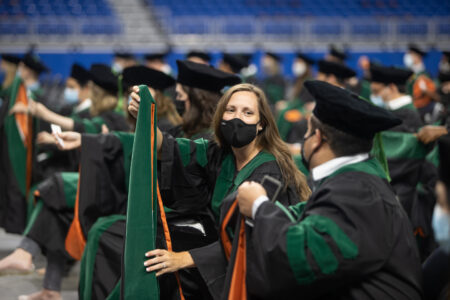Residency
Residency Overview
Close partnership with the Internal Medicine Residency program continuously optimizes resident education to include: case-based noon report four times weekly, resident journal club with faculty mentorship, intern lectures, and upper-level resident lectures. Faculty based in outpatient settings lead a weekly seminar using the Johns Hopkins Physician Education and Assessment Center (PEAC) web-based modules. Residents are assigned a module to complete on their own each week and then faculty facilitate a small group, case-based discussion to further enhance knowledge.
Faculty in the Division of Hospital Medicine are the principal outpatient educators for residents who have their continuity clinic at the downtown Robert B. Green campus. Preceptors instruct residents on management of acute, chronic, and preventive care of ambulatory patients through bedside teaching. Specific faculty also lead focused clinical teaching in geriatric assessment, dermatologic disorders and procedures, women’s health, and joint injections.
Faculty in the Division of Hospital Medicine supervise residents who have their continuity clinic at the VA IMC (Internal Medicine Clinic). This clinic provides longitudinal and acute care to a unique patient population that includes veterans of all ages. Residents also have the opportunity to rotate through the IMC Musculoskeletal Clinic. Residents learn to identify and treat common orthopedics issues and perform in-office procedures, like joint injections. Faculty also precept the IMC Preoperative Clinic, where residents learn to risk stratify and medically optimize patients prior to surgery.
Electives
Resident Electives developed and led by members of the division include:
- Hospital Medicine – To develop triaging skills, upper level residents learn to coordinate and prioritize triage calls from the Emergency Department and outside hospitals, and transfer requests from other specialties.
- Resident as Teacher Elective – Any level resident may participate to critically observe teaching activities, meet weekly with faculty to review evidence-based teaching literature and theory and take on teaching roles in a variety of situations.
- Medical Spanish – Spanish-fluent residents take advantage of this elective to develop familiarity with Spanish medical terminology while interviewing Spanish-speaking patients to better understand the healthcare system barriers they face.
- Point of Care Ultrasound – Training in ultrasound-guided procedural skills. This elective expands knowledge and skills to include the use of ultrasound for bedside diagnosis.
- Global Health – Faculty with an interest in global health have created a global health elective for internal medicine residents. Several sites have been established: an inpatient experience at Scottish Livingstone Hospital in Botswana, an outpatient experience at Chinle Indian Health Service in the Navajo Nation in Chinle, Arizona, and a community health experience in Nicaragua. The global health program serves to improve recruitment of quality residents to the program, foster cultural sensitivity, encourage bedside clinical skills, and promote thoughtful use of resources.
- Primary Care Track – The Primary Care Track started in 2017-2018 and is led by clinician-educators in the Division. It offers enhanced experiences in ambulatory care, including behavioral health, dermatology, diabetes, and musculoskeletal conditions, to prepare residents for a career in ambulatory general medicine. Faculty from the Division at the VA and RBG clinics are longitudinal preceptors of residents in the UT Health San Antonio Primary Care Track.
- Curriculum Under Development – Our faculty also participate in curriculum development, including a workgroup currently focusing on enhancing night shift education.

